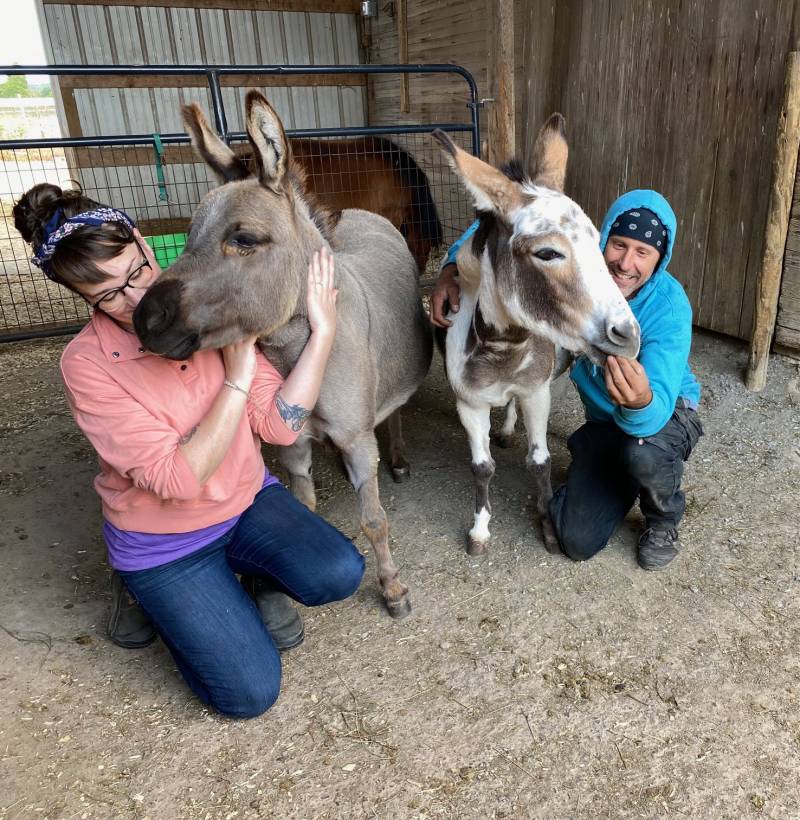
Photo by Joanne Beck
Barnaby's eyes -- with two dark thin slits across each eyeball -- cautiously observe and capture a stranger's attention as he approaches his front yard fence, while Anne has a way about her when she sidles up to a person and nudges her neck ever so gently against you. There’s only one thing to do but reach out and stroke her nose and neck in quiet sympathy for her current hip pain that causes her to limp.
Ferris and Forrest seem obliviously content to continue snacking while Cici may try to take a lick of a visitor’s arm, and there are so many more residents of Mockingbird Farm Sanctuary just waiting to say hello.
And they’ve all got names, personalities and individual voices if you just give them a moment, co-founder Jonell Chudyk says.
“I heavily believe in the power of the human-animal bond when it's done when it's mutually beneficial. I think humans can heal animals, and animals can heal humans as long as it's done in a mutually beneficial environment,” Chudyk said during an interview with The Batavian. “So my goal, obviously, was to create this place that's a sanctuary for both humans and nonhumans.”
It was quite apparent during a recent tour of the Upper Holley Road farm that Chudyk has given the 52 animals — 19 species in all — many moments since the farm’s founding with Jon Tedd in 2015.
From Barnaby, a brown goat, to Anne, a miniature donkey once used for a traveling petting zoo and who got caught in a hoarding situation with fellow donkey Gilbert, all of the animals have been rescues or turn-ins that are now living a much healthier, safer and happier life.
There’s a story for every animal, including the pot-bellied pigs that were purchased by people thinking they’d be a cute, petite pet for the house, until the realization that it was a pig that was going to grow in girth and poundage.
And River, the now three-year-old black-and-white cow who was found running down a Rochester street as a three-day-old calf with its umbilical cord still attached. Nobody claimed the poor confused baby, and it eventually found refuge at Mockingbird.
Or those Eastertime gifts that might get tucked into a child’s basket along with the chocolate bunny rabbits.
“We’ve gotten 245 requests for surrenders of roosters from people who got chicks and then couldn’t keep them or didn’t want them when they got older,” she said.
Lucy, a mom goat, and her baby, Ruby, were part of a breeding operation used for ritualistic slaughter out of state. They came to the farm quite sick, requiring extensive medical treatment and Tedd and Chudyk donning tyvek suits just to treat them.
Some of the animals have stayed inside with Chudyk until they were recovered enough to go back into the barn.
Cici the cow became a big fundraising effort, with the community rallying around to raise $14,000 to save her from multiple diseases after a stay at Cornell University.
Why farm animals, and why spend so much money on them? Well, why not farm animals, Chudyk counters.
“I’ve been around horses for 26 years. And they were sort of my happiness and therapy growing up. So I knew I always wanted to do something with animals,” she said. “And for as long as I can remember, I've been rescuing animals like baby squirrels and just involved with, I guess I would say, the welfare of animals for as long as I can remember.”
She met Tedd through a mutual friend who was in a band with him, and they discovered they shared the same dream to operate a sanctuary like this. The dream came true in 2015 when Chudyk moved there and bought the place. Mockingbird became an official 501(c)(3) two years later.
She believes that one animal is as important as any other, and learning about all species has allowed her to understand that they all really do have their own niche.
Just like their cats, dogs and smaller animals that reside inside their home on the farm, all of them have their rightful place and a voice that if you stop and listen, you’ll hear it, she said.
Hart, the large green-eyed Maine coon cat that appeared on their property years ago and never left, has nuzzled right into the mix — amazingly unfazed by the ducks and chickens.
Chudyk and her family, husband Joseph and daughter Audrey, have adopted this way of life quite naturally, though it's not easy. The sanctuary is completely run on a volunteer and donation basis, with no grant or government assistance, she said.
The property includes a 6,000-square-foot barn, circa 1800s, and five out-buildings on 10 acres of land. There's a board of directors and some 16 volunteers who work according to their own schedules.
There is a subscription service, Patreon, and her job as a licensed therapist that helps to support the organization, Chudyk said, plus sponsorships of animals, donations, and events.
One of the farm’s big events will be the second annual Fall Festival, set for 1 to 6 p.m. Oct. 7 at 5978 Upper Holley Road, Byron. This year’s goal is to raise $15,000, which would buy hay for this winter season. There’s no formal admission, with a suggested donation of $10, which includes a self-guided tour of the farm and availability to meet its residents.
There will also be at least a dozen vendors with food and crafts for sale, including Grass Fed Rochester, New Ethic Pizzeria & Cafe, and Isotope Ice Cream and Desserts. Other activities will include games, face painting, temporary tattoos, live music, a pumpkin patch and raffles.
Vendors and sponsorships are still being accepted for the festival, with a variety of online and in-person promotional perks for sponsors. Volunteers and donations are always needed and welcomed, she said.
It takes $6,000 a month to care for the animals, and untold hours of cleaning, scrubbing, and filling bowls and buckets with food and water, clearing out their beds of poop, providing for their medical and personal needs, and, of course, giving a good ear, nose or back rub for those that have come to trust it.
Chudyk bakes cookies with CBD so that some of the treatments are more palatable, as many of the animals have joint issues, osteoarthritis, or other injuries and ailments from their prior journeys.
Again, why go to such time, energy and expense for farm animals?
“You can care about humans and animals at the same time. And if folks are compelled to donate, awesome, if not, they don't have to," she said. "So we always make it a point where like, personally, I would pay the bills, you know, I would never expect the public to, if we take on an animal with expenses like that, we don't expect the public to just fund it. If we can't get that support, we would never put an animal in a situation where we wouldn't be able to afford it personally.
“But the thing is, don't they deserve voices? You know, we are essentially the voices for the voiceless. And it's difficult to see so much support for companion animals when nobody would bat an eye at $14,000 to have colic surgery for a horse, but to save a calf, that would be controversial," she said.
"We just don't see it that way. And that's okay if other people don’t.”
For more information, go to mockingbirdfarm.com
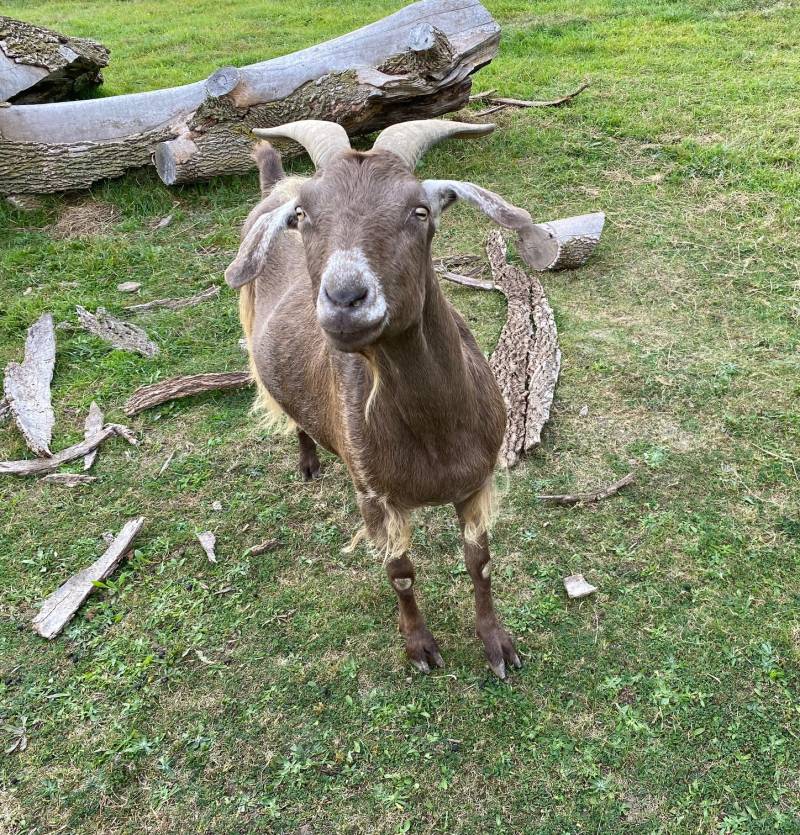
Photo by Joanne Beck
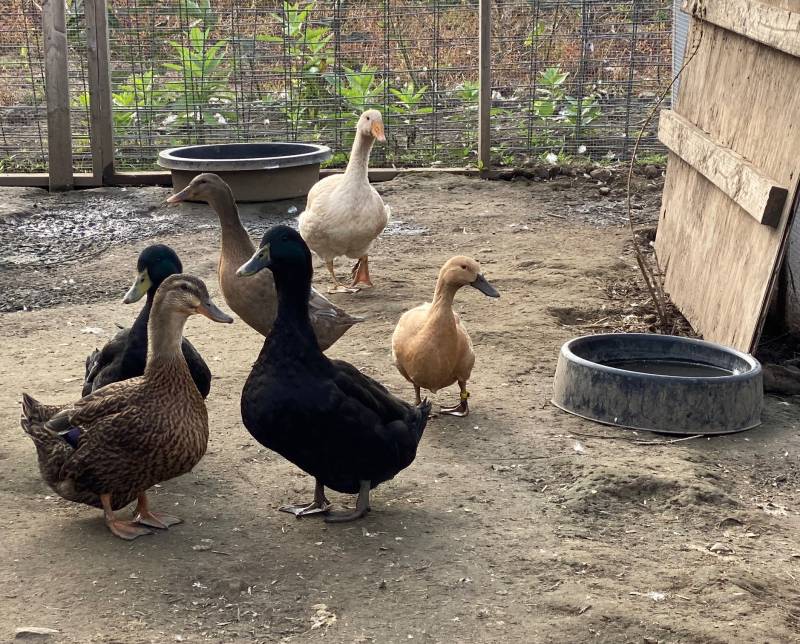
Photo by Joanne Beck
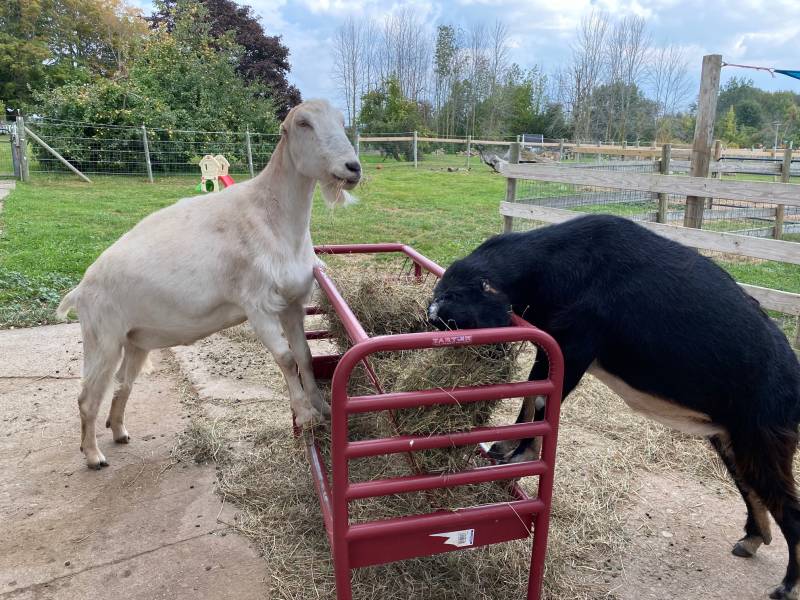
Photo by Joanne Beck
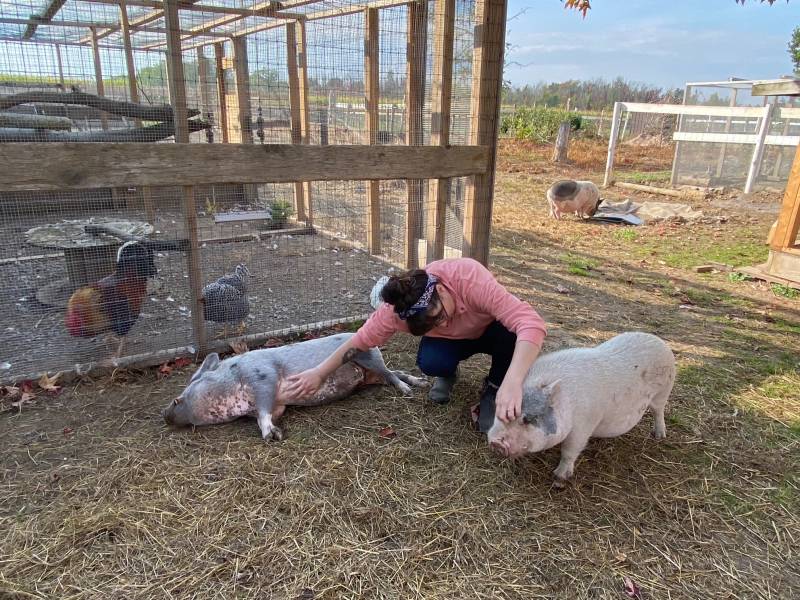
Photo by Joanne Beck
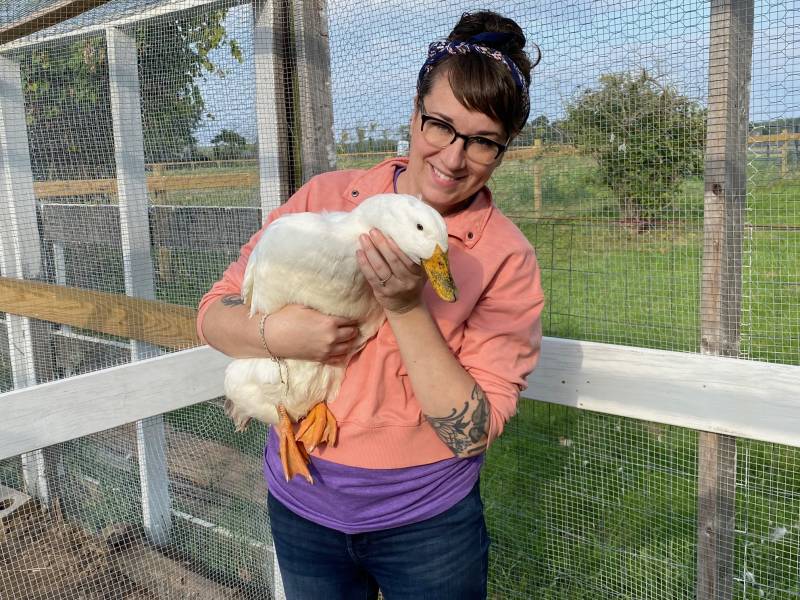
Photo by Joanne Beck
